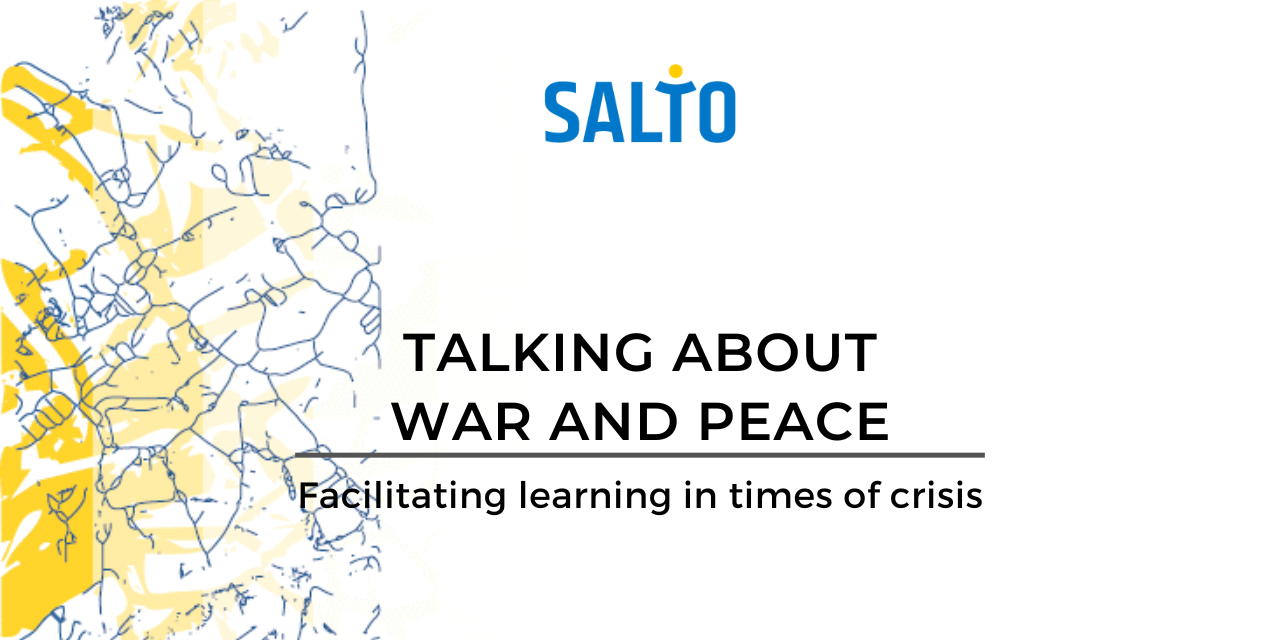Talking about war and peace. Facilitating learning in times of crisis

“Talking about war and peace” is a self-paced online course that guides you through a process of reflection and practical activities on how to approach this topic in your work, locally or in transnational events.
As a facilitator, trainer or youth worker that works with interculturally mixed groups of young people you know that it is difficult to address this topic. Indeed, talking about war and peace is a challenge.
This course aims at preparing and supporting you facing this challenge. The activities and reflections guide you through a process of self-clarification and introduces tools to work with young people locally or in transnational events.
How to facilitate learning in times of war and crisis?
To answer this, the course is focusing on three areas:
- Me as a facilitator, trainer and youth worker (the personal level): This is all about how you can prepare yourself and create a safe space for yourself and the people you work with.
- Me and others (the interpersonal level): This is about you, the young people you work with and the question of how to facilitate the learning process of individuals and groups in the context of war and crises.
- Me and community (the local level): This is about you, your community and small actions that can be implemented by and in your community.
- Additionally, this course has a toolbox with various approaches and tools on how to facilitate learning in times of war and crisis as well as a list of additional resources.
The context of this online course
This online course has its origins in the transnational seminar “How to talk about war? - Working with young people in times of war crisis”, which took part 11-16 of July 2022 in Toruń, Poland. The seminar offered a space to reflect on how to talk with young people about the war, its consequences and how it affects our lives. And it inspired participants to take small actions and be impactful in their work as facilitators, trainers or youth workers. This online course also includes content from another residential event in Poland: “Social Inclusion of Young Refugees”, a training course from 27 till 30 September 2022 in Gdańsk.
*******
Course authors: Michael Kimmig and Marta Brzezińska-Hubert
Course provider: SALTO Eastern Europe and Caucasus
Course duration: self-paced (approx. 3-4 hours / module)
Course language: English
Target group: facilitators, trainers, youth workers
Requirements: none
Learning recognition: HOP Certificate
Last update: 27. November 2022
